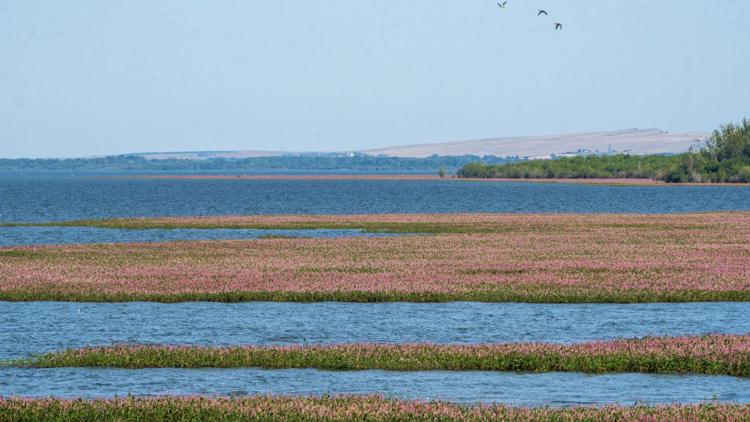NAMPA, Idaho — This story was originally printed in the Idaho Press.
The Idaho Department of Health and Welfare (IDHW) issued a health advisory Tuesday warning residents to stay away from Lake Lowell.
A harmful algal bloom was identified in the lake, located south of Nampa in the Deer Flat National Wildlife Refuge, with high levels of toxin-producing cyanobacteria. These toxins can be harmful to humans and animals.
It is recommended that people stay out of the water and do not recreate near the lake. The IDHW also advised those nearby to avoid bodies of water as a whole.
“Please exercise caution around all water bodies, as there may be affected waters that have not been tested,” a department press release said.
Such algal blooms are most common in late summer and fall, according to the IDHW press release.
Humans and animals are advised to avoid swimming, wading or other contact with the water. The IDHW recommends immediately, thoroughly washing skin or fur that makes contact with the water.
Boiling or filtering is not enough to purify the water to drink, according to the press release.
Those who have swallowed affected water may experience stomach pain, diarrhea or vomiting.
Those who have touched or breathed in affected water droplets should also watch out for the following symptoms: rashes, hives, red eyes, wheezing, coughing, shortness of breath, headache, muscle weakness and dizziness.
Contact with cyanotoxins can result in liver damage, often resulting in dark urine and yellow skin.
The advisory said that pets and livestock “can get sick or die, within minutes to days after cyanotoxin exposure.” If an animal seems sick after contact with contaminated water, the IDHW recommends seeking immediate veterinary care.
Those feeling sick from contact with cyanotoxin should contact their health care provider or the poison center at 1-800-222-1222.
The IDHW asked that those who fall ill notify them at algae@deq.idaho.gov.
More information about algal blooms can be found on the Department of Environmental Quality’s website or on the IDHW’s website.
The public will be notified by the IDHW once the advisory is lifted.
This article originally appeared in the Idaho Press, read more on IdahoPress.com.



